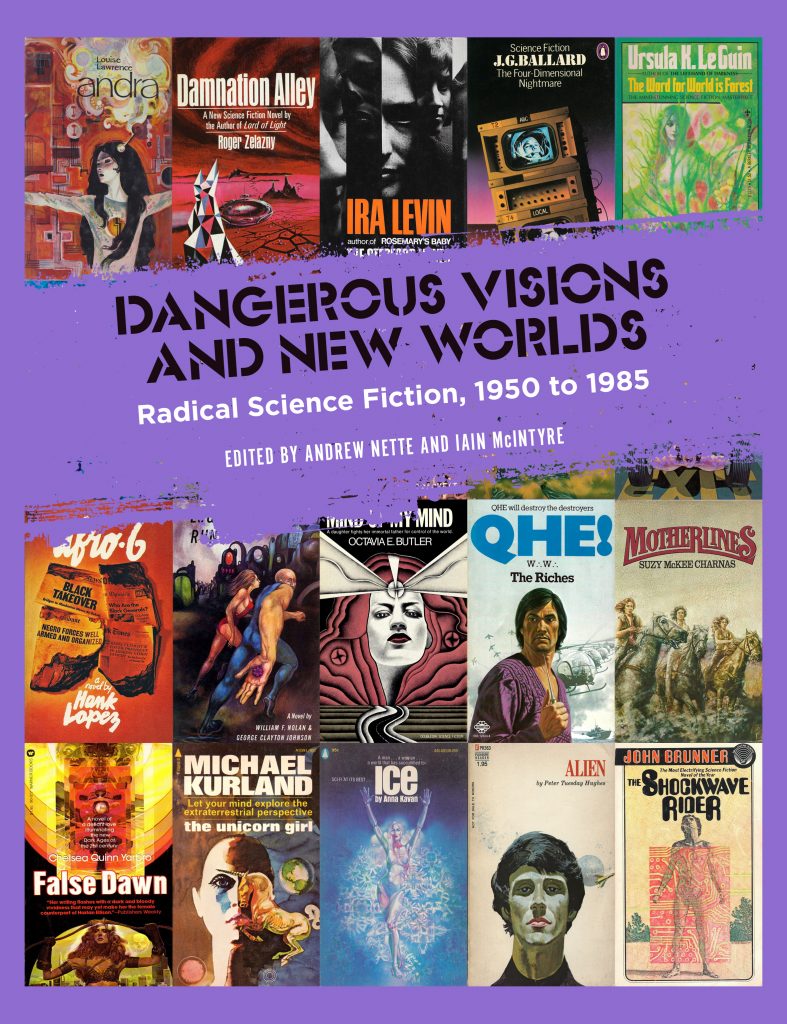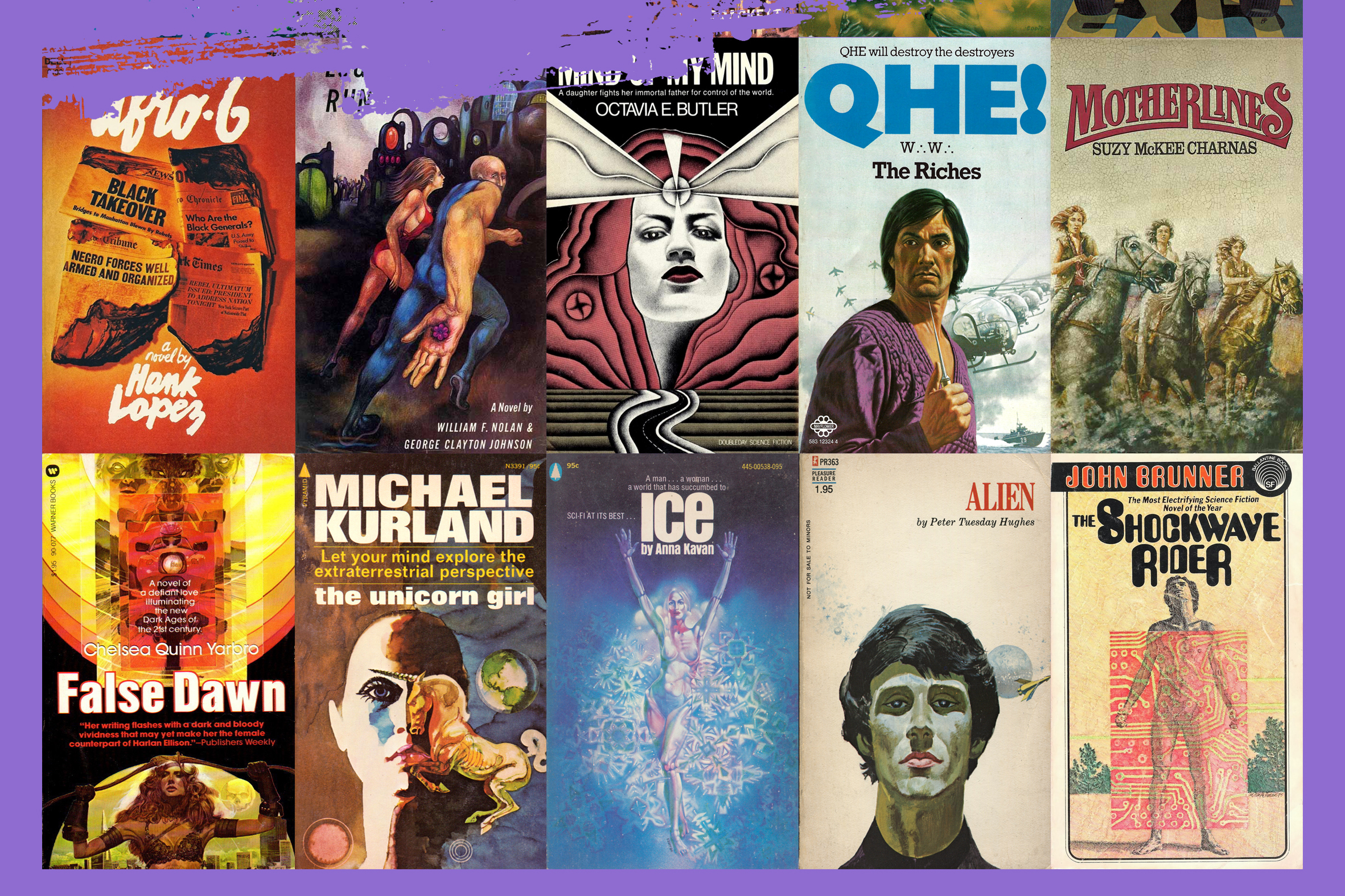By Rowan Cahill
February 18th, 2022
Andrew Nette and Iain McIntyre are Australian social historians and activists producing scholarly works outside of the academy. Dangerous Visions and New Worlds: Radical Science Fiction, 1950-1985 is their latest, third in a series of literary/social histories handsomely and affordably published by California-based radical publisher PM Press.
In this series Nette and McIntyre variously explore mass-market pulp fiction in the Cold War to the 1980s, and the complexities of its relationships with the period’s politics and culture. The first in this series dealt with youth-culture; the second, with social movements and the politics of change.
The irony is that while working outside of the academy, producing books which observe scholarly tenets in non-academic ways, indeed books the neoliberal academy does not encourage the production of, Nette and McIntyre successfully produce works that end up being cited in the academic footnote industry.
Packaged as a coffee-table paperback, loaded with colour reproductions of book covers and author photographs, Dangerous Visions is an exploration of radical science fiction during the period 1950 -1985. As the editors explain in their Introduction to this collection of essays by twenty-two contributors, ‘radical science fiction’ is literature in the science fiction genre that variously challenged “established power and social relations” of that present in radical alternative realities.
During the period traversed, this genre spawned a huge literature in terms of the volume of titles published. As the book explains, many of these titles were consumed in a mass way being affordably produced courtesy of technological changes in the printing industry, and there being a hungry market for it. As the many cover illustrations in the text show, it also helped that the titles were attractively, dramatically, even luridly, packaged. Dangerous Visions contains a mass of material, and the provision of a comprehensive Index assists navigation and trawling.
The lead essay by Rjurik Davidson sets the scene. During 1968, the well-known American magazine Galaxy Science Fiction published two lists of science fiction writers, editors and illustrators, one large group supporting the American war in Vietnam, the other, equally large, opposing it. Via concise chapters by specialist authors, the book goes on to explore how this polarity was variously manifested and played out.
These specialist contributions are readable, jargon free, and enjoyably informative. Editors Nette and McIntyre intersperse these with shorter pieces of their own that are more generalist and free ranging, printed on orange pages and profusely illustrated. Dangerous Visions is a book crafted and designed in ways that invite and facilitate browsing.
Overall, the book demonstrates how science fiction writers during the period linked with its widespread liberating resistances and social justice imperatives. Speculative writings, freed from the hegemonic confines of contemporary capitalism, its modes of governance, its social norms and mores, imagined alternative worlds and relationships, modes of governance, ways of relating and being. Their literary creations emerged out of the period, fed back into it, and entertainment aside, arguably also helped fuel the aspirations and imaginations of activists and their movements.
Dangerous Visions demonstrates that a powerful, vibrant, far-reaching movement and impetus for social justice and change is not just about politics understood in terms of organisation, ideological platforms and programs, but also about an imaginative, challenging, creative attendant culture which critiques, articulates, envisages possibilities and alternatives, variously entertaining, nourishing and inspiring that movement.
Which is no doubt today why you don’t have to look far to see powerful initiatives by neoliberal governments and their instrumentalities hell bent on defunding creative people and their creativities; while in corporatized universities the Arts and Humanities, traditionally spaces that have harboured, nurtured and encouraged questioning, diversities, creativities, that which resists being fetishly commodified as useful to the needs of capital, are variously starved of funding or are simply managerialised away to nothingness.







